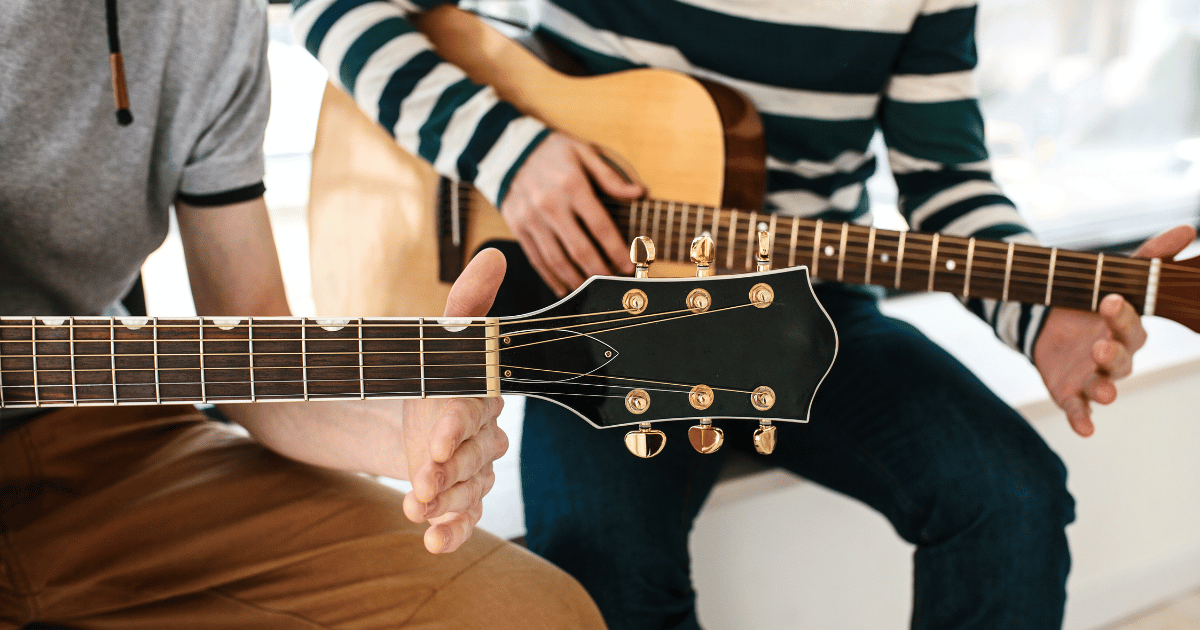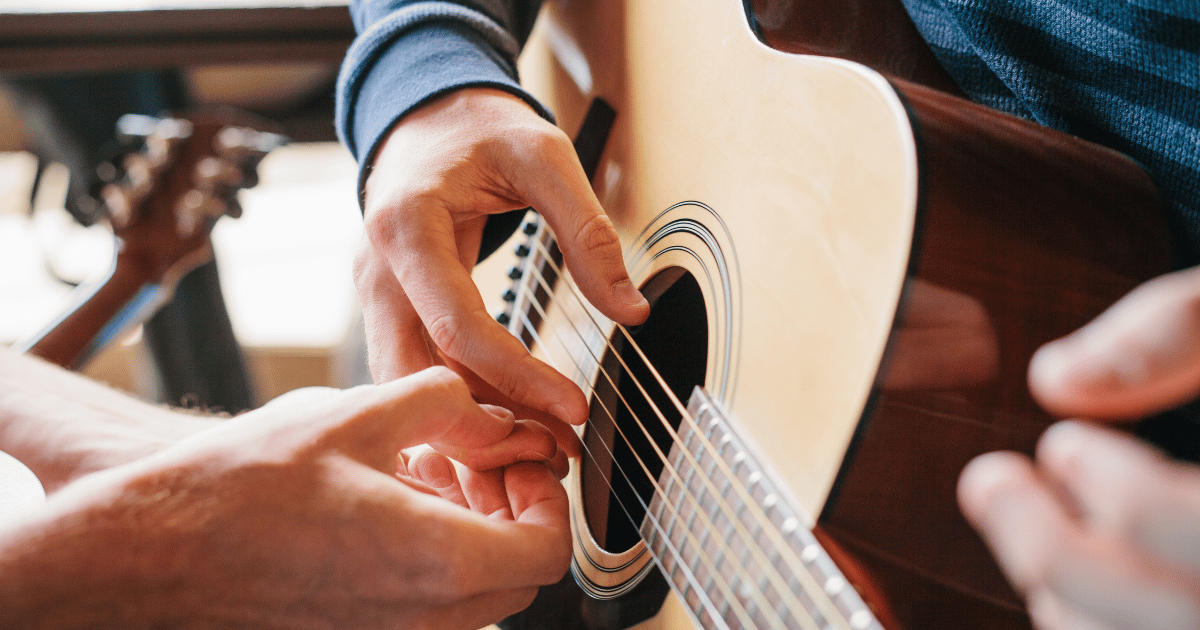
As an aspiring guitarist, this question has been top of mind for me since I first picked up the instrument.
I wanted to master flashy solos and play my favorite songs quickly.
However, I’ve learned that taking a patient, measured approach is key on the long road towards guitar excellence.
How Long to Learn Guitar?
I used to only measure my guitar progress in years passed. But I’ve learned that total hours practicing is what really matters.
Mastering guitar takes a massive personal investment over time. As a rule of thumb through, it takes:
- 100 hours to play some basic tunes
- 500 hours to play a few songs start-to-finish
- 1,500 hours to lead simple jams with others
- 3,000+ hours to improvise solos and write your songs
- 6,000+ hours to reach an advanced expressive level
Guitar Learning Has Levels of Competency
When I started on my guitar journey, I wish I’d had more clarity on typical learning trajectories based on others’ real experience.
While each player’s development is unique, outlining some common benchmark levels can set helpful expectations around how competency progresses with invested hours:
- Beginner Guitarist (100 hours): At around 100 hours total, I could strum basic open chords, follow simple tab song sheets, and perhaps even work through an easy 3-4 chord tune, mostly in rhythm. There were still lots of stumbles, with imperfect transitions and rhythm. But I felt excitement playing actual music!
- Capable Player (500 hours): After actively practicing 500 hours over time, I built more chord vocabulary to play songs through start-to-finish. My fretting hand grew more nimble. And importantly, music theory started to click more intuitively rather than seeming like an abstract concept.
- Advanced Beginner (1500 hours): Around 1,500 invested hours over months and years, my technique got more fluid. I could lead friends in simple jam sessions, and even write chord progressions of my own. Hardest at this stage was learning to self-direct my practice sessions for efficiency.
- Intermediate Guitarist (3,000 hours): At the 3,000 hour experience level, the fretboard started opening up. I could improvise bluesy solos, compose interesting riffs for songwriting and understand how to target weaknesses. Books and lessons accelerated my skills better with this solid base.
- Advanced Player (6,000+ hours): Today I’m still striving towards this stratum, which I consider “advanced”. At this level you intuitively grasp technique and theory. Your tone, dynamics and expression capture feeling beyond just the notes. You can teach others, too. I may need 6,000+ hours to internalize that musicality.
Hopefully, visualizing these tiers helps provide expectations. It’s an epic journey, but very fulfilling!
Table of Guitar Learning Hours
| Proficiency Level | Lifetime Hours Practiced |
|---|---|
| Beginner | 100 hours |
| Capable | 500 hours |
| Advanced Beginner | 1,500 hours |
| Intermediate | 3,000 hours |
| Advanced | 6,000+ hours |
Stay Motivated With These Acceleration Tips
I won’t lie – the long road towards guitar excellence can sometimes be exhausting. After the initial honeymoon phase wore off, I sometimes struggled to pick up my axe or felt I hit plateaus.
When motivation lagged, I discovered some best practices to accelerate my skills:
- Set specific, measurable goals: Rather than vague aspirations “to shred”, I set targeted weekly goals to learn new songs, techniques and theory. Quantifying these gives a sense of progress.
- Move outside my comfort zone: I force myself to spend at least 30% of practice time on material above my level. Instead of just smoothly running through easy songs I know well, I now struggle through challenging chord changes, speed training and improvisation that pushes me.
- Join jam sessions: Finding accepting bandmates willing to let me join their jam sessions provided crucial applied practice. Having to keep up with their changes forced me to expand my skills.
- Take lessons from pros: While cost can add up, nothing turbocharges your playing like 1-on-1 wisdom from advanced guitarists. I prioritize occasional lessons for personalized feedback.
- Practice challenging songs: Rather than just playing easy 3-chord tunes, I expanded my abilities by learning full, intricate songs – including solos – across genres. Breaking them down section-by-section builds mechanics.
Closing Thoughts on the Guitar Journey
The key insight beginners should internalize is not to measure your progress in calendar years. Instead, approach guitar growth with a focus on accruing lifetime hours logged practicing, performing and expanding your skills. View milestones like accumulating 1,000 hours or hitting the 10,000 hour mastery plateau.


